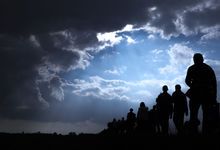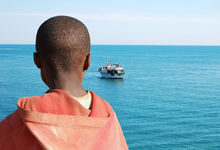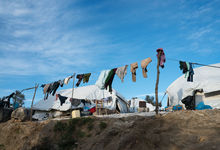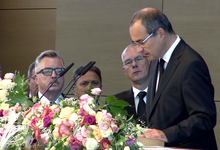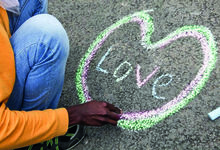Lending a helping hand to the stranger
They are on the move—people who have had to leave their homes. They are displaced, homeless people who are rarely welcomed anywhere, and unfortunately their lot is still a bitter reality for far too many. June 20 is designated as World Refugee Day.
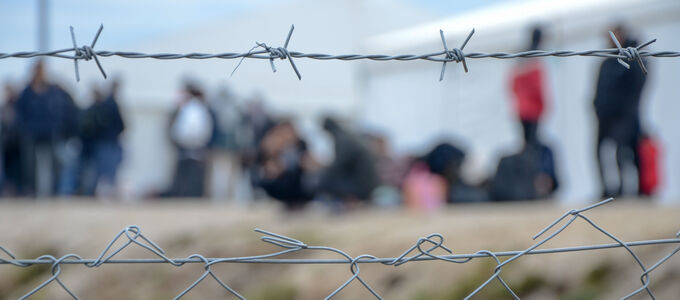
As it does every year, the United Nations High Commission for Refugees (UNHCR) draws attention to the great misery suffered by people who do not have a permanent home. They are in urgent need of help and support, warmth and goodwill. Often traumatised, they set off on new paths which they did not choose themselves. Their stark choice: either stay at home and die, or leave and try to survive. They have no other options. The trouble spots have been the same for years, and not much has changed.
The website of the UNHCR has announced that, for the first time ever, the number of refugees around the world has risen to over 100 million. This amounts to nearly one percent of the population of the world. It goes on to say that the developments in this year have been especially driven by the war in the Ukraine, but also by other deadly conflicts. The United Nations High Commissioner for Refugees, Filippo Grandi, recently said: “A hundred million is a bare figure that is both sobering and alarming. It is a record that should never have been reached.” After all, “Behind every one of these figures there is a human being who has been driven from his home and who must endure a fate of flight, displacement, and suffering.” “
Seeking peace and stability
Violence and protracted conflicts are the norm in many countries around the world. Examples include Afghanistan, Burkina Faso, Ethiopia, Myanmar, Nigeria, Somalia, the entire Sahel Region, and the Democratic Republic of Congo. The Middle East is also familiar with such problems, as is Western Turkey and, more recently, the Ukraine. Grandi went on to say: “Ultimately, humanitarian aid is more of a pain reliever, not a cure. To reverse the trend, there is only one answer: peace and stability, so that innocent people are not forced to choose between imminent danger at home or dangerous flight and exile.”
It is well known that peace and security do not simply fall from the sky. To this day, human rights must all too often compete against profit maximisation and abuse of office. The latter are dictates, the former need protection. Not an easy thing. From the Christian perspective, there are antidotes for xenophobia and discrimination:
- give no room to hatred in your heart
- treat strangers as friends
- share with them what you have yourself
- give your friend that which you yourself expect from him or her
- and so on…
There are several accounts in the gospels that illustrate these points, for example, that of the ten lepers in Luke 17: 11–19:
“It happened that as He made his way toward Jerusalem, He crossed over the border between Samaria and Galilee. As He entered a village, ten men, all lepers, met him. They kept their distance but raised their voices, calling out, ‘Jesus, Master, have mercy on us!’ Taking a good look at them, He said, ‘Go, show yourselves to the priests.’ They went, and while still on their way, became clean. One of them, when he realised that he was healed, turned around and came back, shouting his gratitude, glorifying God. He kneeled at Jesus’ feet, so grateful. He couldn’t thank him enough—and he was a Samaritan. Jesus said, ‘Were not ten healed? Where are the nine? Can none be found to come back and give glory to God except this outsider?’ Then He said to him, ‘Get up. On your way. Your faith has healed and saved you’” (taken from The Message translation).
We can learn many things from outsiders, for example, gratitude.
Creating peace
Albert Schweitzer, the great thinker, theologian, and jungle doctor, was without a doubt a man of peace. He once made the statement: “Only the kind of thinking in which the spirit of reverence for life prevails is capable of ushering in a time of peace in our world.” And that is the true core of the matter, namely to have reverence for life, regardless of lineage, influence, or position. That is basically the foundation for all aid and relief efforts, because one thing is also clear: refugee camps are not prisons, but the people in them are not free either. And for many—far too many—people, home remains nothing more than a dream.
Article info
Author:
Date:
Keywords:
Peter Johanning
20.06.2022
Social commitment,
Congregational life


